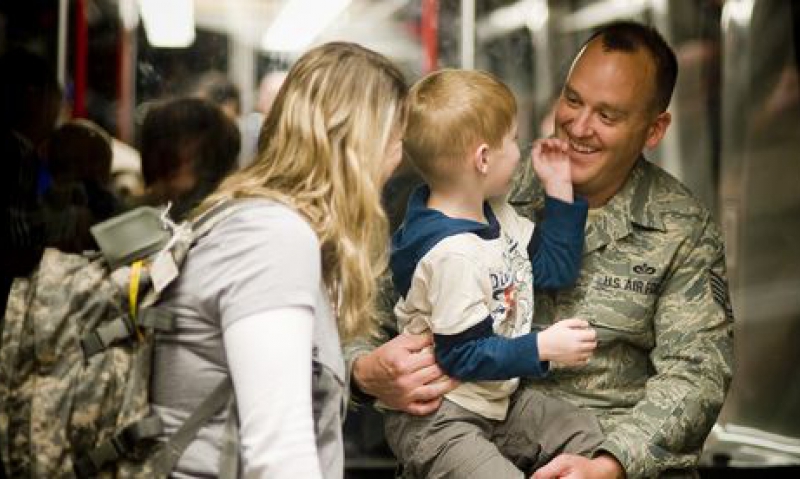
High-level Pentagon advisor praises Legion’s troop-support efforts during meeting with organization staff, volunteers.
No sales pitch was needed to convince a high-level Pentagon advisor of The American Legion’s worth in support of servicemembers and their families. John Newman, a special assistant to the Assistant Secretary of the Army, is a Legionnaire himself and knows firsthand how the organization works.
In a meeting this week with Barry Searle, director of the Legion’s National Security/Foreign Relations (NSFR) Division, Newman told the tale of a deployed soldier’s wife coming up to him at a town hall meeting, very upset because – with her husband absent – she had no one to mow her lawn. Newman did the natural thing for a Legionnaire. “Call your local American Legion post,” he advised.
“Getting someone to cut the grass may seem like a small thing,” Searle said, “but it is precisely that sort of task – the little ones, but so many of them – that can cause a military family physical and emotional hardship during the absences of their loved one. It’s important to help these families because their well-being affects the well-being of our war fighters. The American Legion and the Army recognize that.”
In the Pentagon meeting with Newman, Searle was joined by Mike Schlee, chairman of the Legion’s National Security Commission, NSFR Deputy Director Joseph Grassi and Daryl Hill, the Legion’s Heroes to Hometowns program coordinator.
Much of the discussion centered around the special needs of Army Reservists and their families. “We identified with significant detail the Legion’s efforts to improve employment opportunities for veterans – which is our primary strategic goal this year – as well as the work of our TBI/PTS (traumatic brain injury/post-traumatic stress) ad hoc committee,” said Searle.
For his part, Newman detailed the Army Reserve’s efforts to reach out to groups like The American Legion to help Reserve personnel gain and maintain good civilian employment and aid their families in meeting day-to-day challenges. He also told of the Army Reserve’s work to obtain civilian certification for personnel trained in specific military occupations, such as military police or medical billets. It is a cause favored and promoted on Capitol Hill by the Legion.
Searle says he also discussed the Legion’s Family Support Initiative with Newman, a plan currently being developed by NSFR.
“This initiative would provide any American Legion post to ‘adopt’ a military unit and provide support for children and spouses when those units are deployed overseas,” Searle said. “A Legion post could sponsor picnics, Christmas parties and other events for the military families. And when moms or dads have a problem at home – electrical, mechanical or otherwise – they know the Legion post will help them out.”
Searle said that Newman showed great interest in the Family Support Initiative, which led to a subsequent meeting with Delores Johnson Davis, the Army’s assistant deputy for Soldier Family Quality of Life.
“It was a good day, one that helped strengthen the bond between the Legion and the Pentagon,” Searle said. “It is clear that the Army Reserve’s efforts and our Family Support Initiative share a common purpose and are natural partners. In this regard, we’d like to have Legion posts and departments contact us about their existing best practices in support of military families, and to volunteer some of their time for this new initiative.”
- Troops

